These days, many people enjoy shopping or ordering services online. With such an audience, marketplaces have promising opportunities to attract more customers and expand. This means that the work of online marketplaces needs to be fast and convenient. In this regard, the integrations that speed up business processes come in handy when you build an online marketplace.
Thanks to integrations, marketplaces automate routine operations, such as payments and shipment. As your marketplace becomes more efficient, you can focus on improving customers’ experience.
In this article, we will discuss the top marketplace integrations that will help you run your marketplace and make it a perfect place for transactions and communication between buyers and sellers. Let’s get into it.
What are online marketplace integrations?
Basically, marketplace integration is software that connects a service system to a marketplace. Such a system helps add more features to the marketplace platform, including payments, order management, shipping, and more.
A developer adds integrations along with other functionality when creating an online marketplace. Thus, integration providers care that the code is compatible with online store solutions.
How do they work?
Online marketplace integrations are based on the application programming interface (API). This code set allows you to connect and transfer data between two applications or platforms. Thus, the data from multiple marketplaces is added to one platform.
API allows synchronizing data in real time. This means that once data is updated on a marketplace, it is also renewed on the central portal. So, the main steps that an integration for an ecommerce marketplace solution allows are as follows:
- Connection;
- Data transfer;
- Data synchronization.
Benefits of marketplace integrations
What’s prominent about marketplace integrations is that they facilitate and speed up trade processes thanks to automation and real-time updates. The key benefits of including integrations in your marketplace are as follows:
- Handling inventory with timely procurements;
- Managing many supply chains;
- Shipping tailored to marketplace needs;
- Quick and easy processing of payment transactions;
- Checking buyers’ and sellers’ behavior when they use your marketplace.
Such features for marketplace sellers and owners allow them to focus on their businesses while growing product range and audience. So, including integrations is one of the key trends for online marketplace platforms. Besides, integrations save time for development as they can be easily inserted into the marketplace structure.
Let’s discover what integrations are commonly used and how they help efficiently handle trade operations.
You may also like: How to Create an Online Service Marketplace: Ultimate Guide
1. Inventory management
Skuvault
The tool provides a real-time reporting and analytics system that allows merchants to track inventory needs. Based on the data reports, sellers can do three types of operations: reorder, replenish, and merge. This enables merchants to foresee the needed inventory based on the sales history. As you handle stock with more efficiency, you keep your time and costs down.
If a seller has many warehouses, it is possible to assign zip codes to each of them. This approach facilitates order routing and optimizes the delivery of products.
This order management system allows users to check inventory levels and locations, item history, and product quantity updates. Skuvault also includes various marketplace integration services, such as accounting and shipping solutions.
Below are Skuvault's tips on how automation of warehouse management improves your business.
Read also: How to Build a Marketplace MVP and Not Fail
Fulfil.io
It provides REST API for integration with an online marketplace platform. This software allows sellers to automate order management, procurement, and warehousing. Fulfil.io is a tool developed specifically for wholesale and e-commerce.
This tool allows for real-time tracking of operations and inventory flow. Thus, sellers check if their products are available for ordering. Also, the system includes weight conversion and relieves from making relevant additional calculations.
An online marketplace development company can integrate Fulfil.IO with other services:
- Payment gateways: Braintree, PayPal, Stripe, Authorize.net;
- Business-to-consumer (B2C) and consumer-to-consumer (C2C) marketplaces: Ebay, Etsy, Amazon, Walmart;
- Shipping carriers: FedEx, DHL, UPS.

Zoho Inventory
This cloud-based solution for inventory management allows tracking each item in the sales cycle. Users can apply a serial number or a Zoho batch tracking system. Also, the software enables you to trace the expiry date of each batch of products.
The tool helps create and track orders, backorders, and drop shipments. After each purchase processing, inventory volumes are updated across all channels. In case of possible stock shortages, this online marketplace integration alerts the vendor.
Zoho Inventory includes a convenient system for making warehouse reports. It also facilitates the transfer of products between the warehouses. Furthermore, the tool provides real-time synchronization of contacts and orders. This is helpful for store accounting.
You can integrate the solution with Amazon, eBay, Etsy, and Shopify accounts and, thus, expand your sales. Also, you can choose a shipping carrier and connect your store with the most suitable one for your business.
2. Order management
QuickBooks Commerce
Previously known as TradeGecko, QuickBooks Commerce suits wholesale and multi-channel businesses. This robust system helps automatically manage many sales paths, warehouses, and commerce operations. It serves companies that sell physical products and handles complex supply chains.
The tool lets sellers send sales quotes, generate invoices, and mark orders depending on their fulfillment. This online marketplace integration allows for the centralization of sales from many channels in one place. Also, synchronization of the seller’s order and inventory data in this system enables immediate shipping.
This tool is connected to major online marketplaces, such as Shopify, Amazon, Magento, eBay, and more. With such integrations, the tool helps you expand your audience.
Check the video below on how you can make purchase orders and receive new products with QuickBooks Commerce.
You may also like: Best Monetization Practices to Build a Successful Marketplace
SAP Commerce Cloud
SAP is a B2B and B2C ecommerce platform that provides services to large enterprises. SAP Commerce Cloud is a top-notch marketplace tool that allows for complex operations.
The tool makes it easy for companies to manage their inventory, avoiding unexpected shortages. The system handles orders from any location, saving time and reducing errors. It also splits and joins parcels depending on the dispatch and delivery locations.
This online marketplace integration facilitates returns and refunds. It also helps to view information on fraud and data on payments and buyer details. Furthermore, the system has an integration that enables you to connect customers with support service.
The diagram below shows how SAP Commerce Cloud allows managing orders.
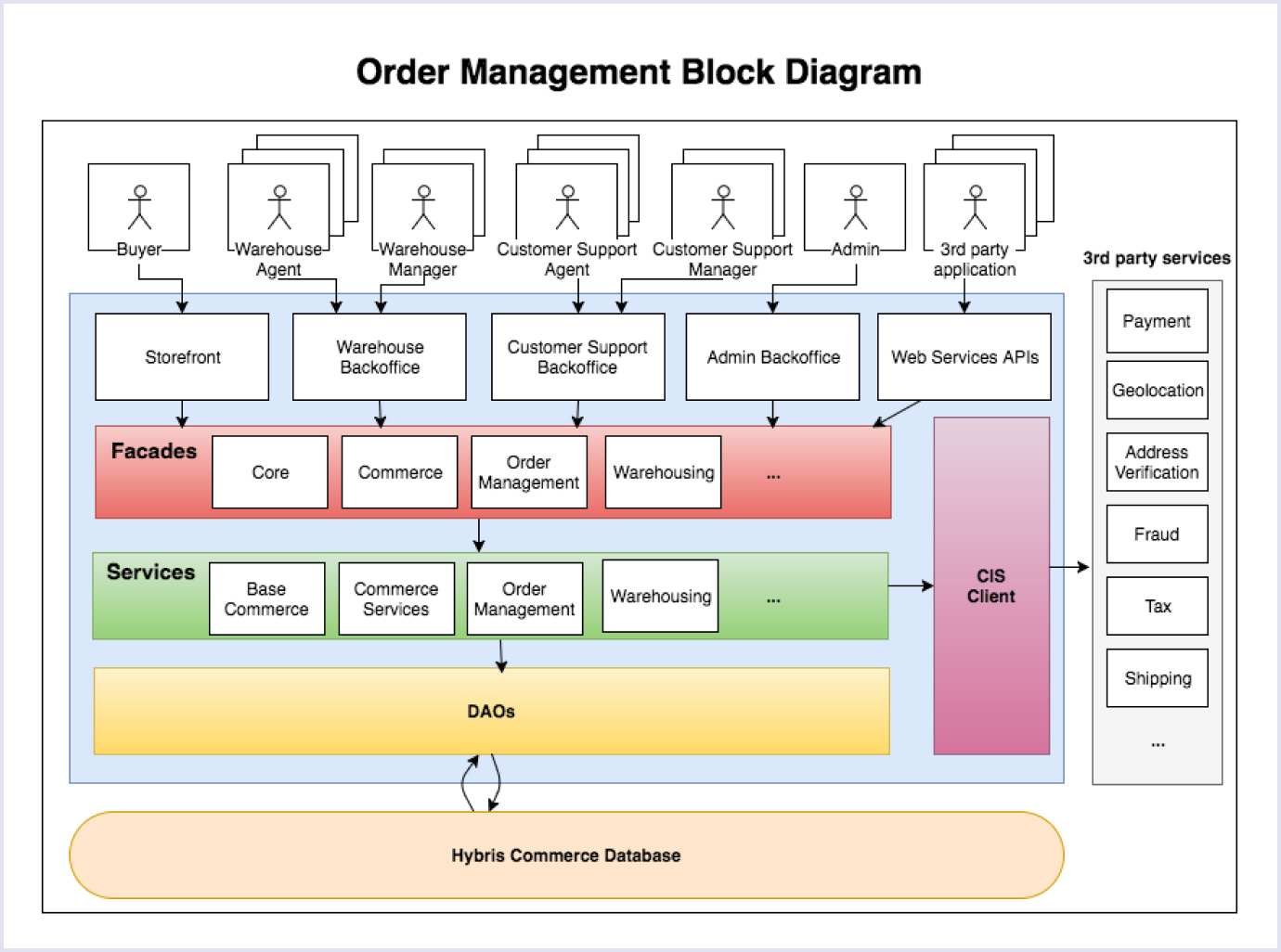
Source: help.sap.com
Bigcommerce Orders
It is helpful for optimizing orders on an online marketplace platform. This solution attracts sellers as they can track the order statuses, such as placement, purchase, and delivery.
The tool sorts orders by different parameters, including date range, shipping method, payment type, and coupon code. Also, the solution helps sellers create shipments and invoices and make compensations.
When an order is placed, the tool sends alerts to a merchant via a text message, email, and a mobile app. It shows payment statuses helping sellers see if the order is paid, in progress, or completed.
Read also: Top Online Marketplaces in Australia 2025: All You Need to Know About Leaders
3. Shipping
Shippo
This shipping API links major carriers to online marketplaces and platforms, including e-commerce. The tool supports local and global carriers, such as UPS, FedEx, Colissimo, and Australia Post.
The native shipping integration allows sellers to do the following:
- Make an instant connection with widely used carrier platforms;
- Customize shipping operations that suit the needs of stores;
- Create and handle merchant accounts;
- Streamline invoicing and refund processes.
The tool has a unique feature verifying that the product has been delivered to a real and existing place. This is attractive for buyers as they need not worry that their parcel will be directed to the wrong address.
The online marketplace integration is tailored to make its implementation easy for developers. It also has ready-made design templates that you can quickly embed in your store or multi-vendor marketplace development solution.
Tracktry
The platform has integrations with more than 700 couriers and allows you to track a package. For this, you need to choose a carrier and type the tracking number. The intuitive UX design helps you discover your order status in a matter of a moment.
Also, this integration allows merchants to notify customers of changes in order status via automatic emails.
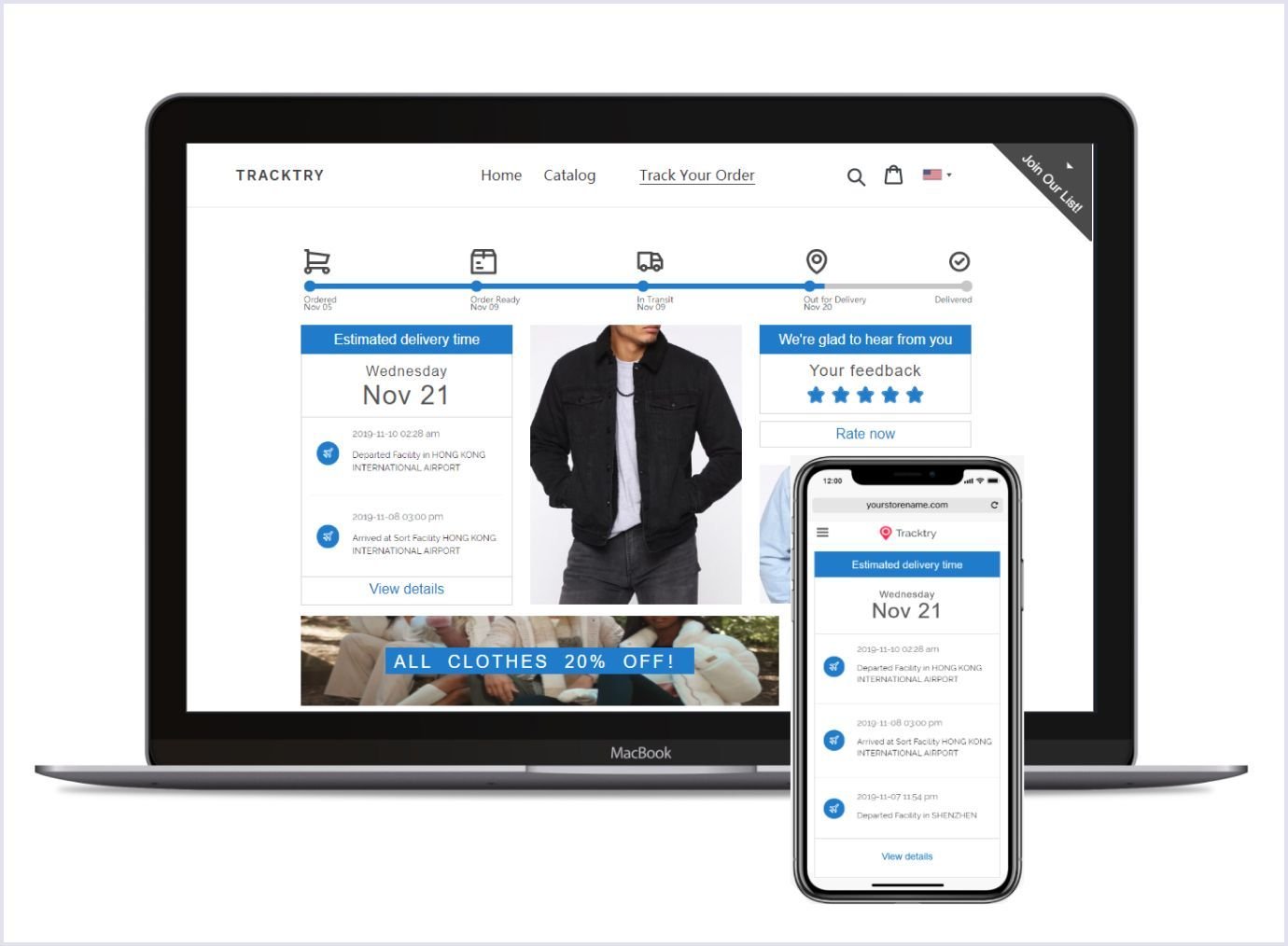
Source: tracktry.com
The tool is available in different pricing ranges, limiting the number of shipments for marketplaces. So, you can choose the plan depending on your business needs.
You may also like: How to Build an NFT Marketplace
4. Payment processing
Stripe
The Stripe solution stands among the most used payment gateways globally. People from 44 countries use this system supporting 135 currencies. It allows users to access the following types of payments:
- Via credit cards: Visa, Mastercard, AmericanExpress, JCB, DinersClub;
- Via electronic wallets: Google Pay, Apple Pay;
- Via bank directs: iDeal, Sofort, Afterpay.
The system allows marketplaces to handle online payments in web and mobile applications. Also, it helps with the automated management of funds.
Security is a crucial aspect of Stripe. It involves machine learning to reveal, estimate, and prevent risks automatically. Also, the system applies 3D Secure and proxy detection tools.
At Codica, we use Stripe for many platforms, for example, in an online marketplace for boats in Australia.
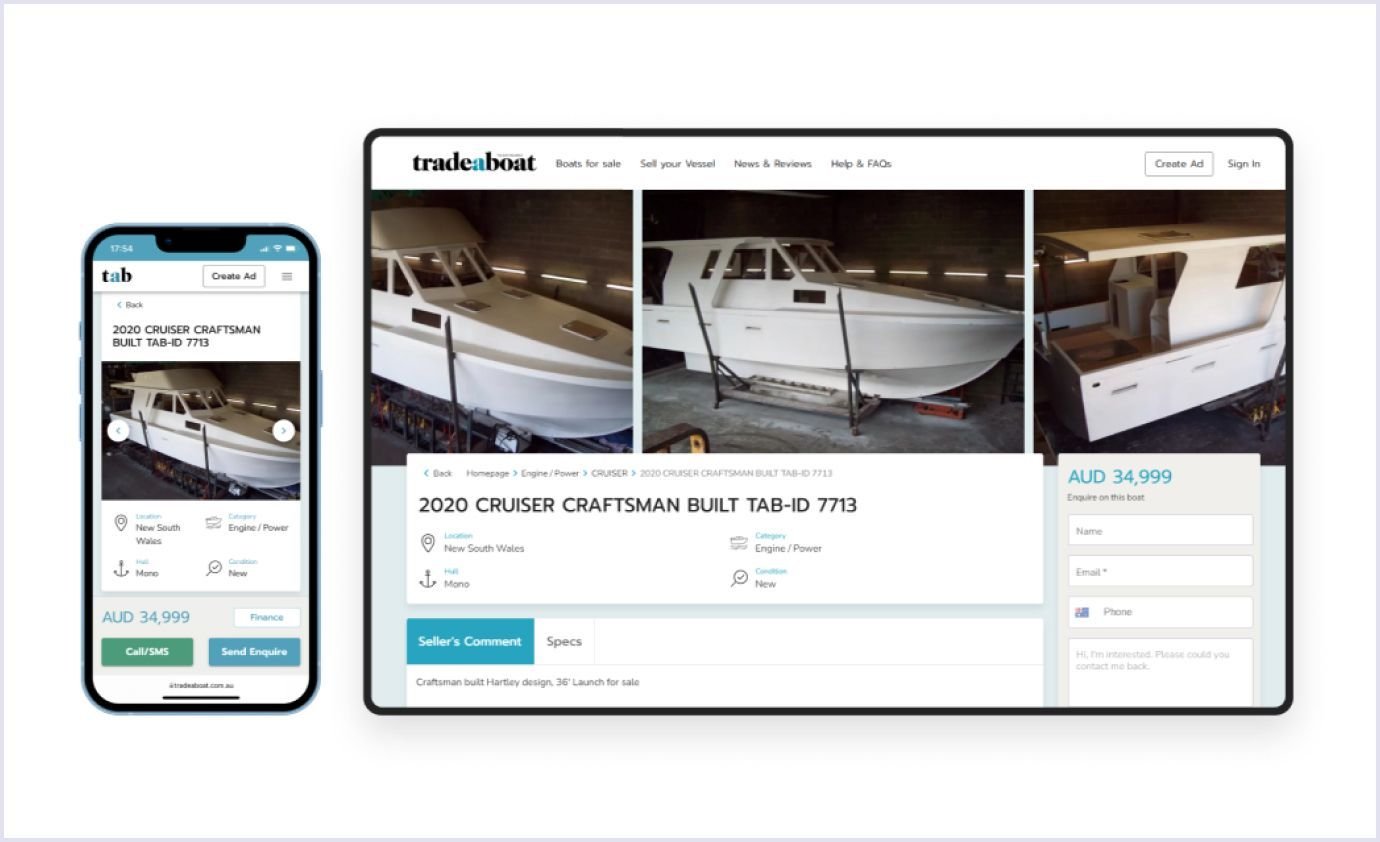
Stripe is flexible and secure. So, the marketplace users win the most from this API-powered solution.
You may also like: How We Delivered a Boat Selling Website for Tradeaboat
Braintree
The system covers many types of payments and services needed for the store operations. This online marketplace integration uses card and address verification tools. So, consumers don’t need to send payment details to each merchant. This increases the security of payments and personal data protection.
The gateway also uses solutions against fraud and follows the latest card payment standards.
A well-thought-out data portability tool allows you to bring your data into the system. It offers security in handling sensitive information. At the same time, you can remove personal data if you decide to leave the portal.
Many companies, from small businesses to big online retailers, have adopted this payment system. Major online marketplace platforms, such as Airbnb and Uber, integrated this gateway.
You may also like: Spree Commerce: How to Build an E-Commerce Website Quickly
PayPal
This is a payment system used in many countries. The tool offers integrations for multiple marketplaces and platforms. Also, it supports over 100 currencies in more than 200 markets.
With this integration, sellers offer different payment options to their customers. This API allows card payments, local payment methods, and PayPal transactions to be used. The system provides for paying through bank accounts and split or multi-seller payments. Thanks to its versatility, PayPal suits various types of marketplaces, from Fiverr to AliExpress.
Furthermore, PayPal allows payments in installments with the PayPal Pay Later service. As the survey shows, this feature makes buyers more eager to purchase items in a store. Thus, such an approach positively influences the turnover of products. The service is available for marketplaces with no extra costs or interest.
Also, this payment integration includes protection against fraud with customizable fraud tools.
Further reading: How Much Does It Cost to Build a Marketplace Website in 2025
5. Tax and VAT compliance
Avalara
The Avalara marketplace integration has a comprehensive set of data and features. Customers can automate rate calculations depending on location and product category. You can also register and remit taxes in different jurisdictions. In addition, the tool helps you handle your text documentation with a single service.
The platform has over 1000 partner integrations needed for business and ecommerce operations. The cases for custom integrations are also foreseen. With Avalara’s APIs, you can connect your solution and enjoy the platform’s tax and VAT features.
6. Analytics
Google Analytics
This marketplace tool shows the strong and weak aspects of your store. It identifies site and content issues and compiles relevant reports. From these reports, you can identify sources of traffic and events that happen when customers stay on your website.
Read also: Why is Ruby on Rails Perfect for Marketplace Development?
Moreover, Google Analytics allows you to analyze and compare the received stats. It offers many tools for marketplaces, including data visualization and predictive analysis. You get valuable data on how customers use your website and insights that will help your business grow. This integration allows you to do the following:
- Calculate churn probability;
- Forecast potential revenue from a particular group of customers;
- Integrate with Google Ads to deliver ads relevant to your customers’ needs.
Google Analytics helps you measure how users interact with your business. This ability is crucial to fast-changing customers’ needs.
Below is the video introducing the core features of Google Analytics.
Mixpanel
It is a perfect data analytics tool for custom marketplace development. It helps discover the customers’ behavior and analyze the prerequisites of churn.
Involving Mixpanel, the store owner can see the events after a user signs up. This tool allows merchants to monitor user flow and attraction to certain products or services.
The online marketplace integration allows you to perform the following analysis:
- A/B testing;
- Audience segmentation;
- Real-time user behavior tracking.
26,000 organizations use Mixpanel, including Uber, Expedia, and X.
Read also: 10 Successful PWA Examples to Inspire You to Build One
Kissmetrics
Typically, data analytics solutions show how many times a web page has been accessed or events performed. Meanwhile, Kissmetrics links the customer’s activity before signing up for your store. This allows you to discover the need that led them to your website and what they made to become your buyers.
The tool tracks user behavior with data like core features, paid plans, and finding and buying products. Kissmetrics provides a simple system for creating reports that include various data on your customers.
This metric system also defines your revenue growth or decrease. The store owner or merchant can measure the revenue by product type, traffic source, and device type.
Further reading: How We Delivered MVP for PlanMyKids - Kids Activities Marketplace (Case Study)
7. Customer relationship management (CRM)
Salesforce CRM (former Tableau CRM)
As a software company, Salesforce offers various business tools, including CRM. This set of tools is powered by artificial intelligence (AI) and machine learning (ML). It provides comprehensive support for sellers and helps you include and analyze data from any source. Based on these insights, the Salesforce CRM helps you streamline your business operations and build strong relationships with buyers.
Zendesk
Offering different software tools, Zendesk also provides retail CRM services. With this integration for marketplaces, you can see customers’ needs from various data types. Zendesk for retail helps you collect data from inventory management, billing, shopping history, and preferences.
The tool allows sellers to provide customer support 24/7 via different channels. You can also create chat automation or use Answer Bot to provide answers to the most frequent questions.
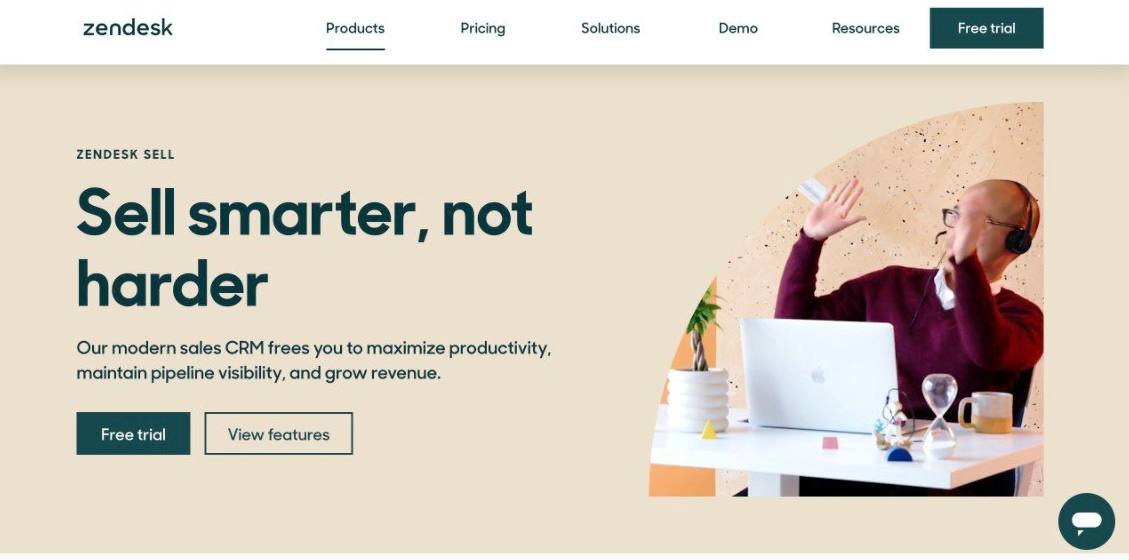
Source: Zendesk
8. Customer behavior
Contentsquare
The marketplace integration service helps you analyze shoppers’ experiences with your website or web. You can use heatmaps, customer journey analysis, and interaction analysis. Moreover, the solution enables you to track errors, friction points, and performance indicators. Based on these data, you can adjust your website flow and product offers to meet customer needs.
VWO
The tool provides an ecommerce segment with thorough experiments and tests to address customer concerns. Quick and in-depth testing allows you to analyze shopper behavior with heatmaps, funnels, analytics, and on-page surveys. Thus, you get accurate data to streamline shoppers’ experiences across different platforms and plan your marketing strategy.
9. Personalization
Justuno
This marketplace integration service helps you target specific customers and groups with personalized experiences. Thanks to intelligence technologies, you can analyze every customer's behavior. Thus, your outreach will be personalized, and shoppers will receive top-notch buying experiences. Justuno’s successful cases show that by using this platform, you can grow your revenue by 135% and your email list by 500%.

Source: Justuno
10. Marketing-oriented features
ActiveCampaign
This set of tools helps you streamline and automate your marketing processes. The suite enables you to reach out to customers via their preferred channels and with personalized emails and other messages. ActiveCampaign allows you to automate marketing processes with over 900 integrations and focus on customers' preferences and needs.
Klaviyo
The platform helps you connect with customers via emails, SMS, and mobile push notifications. You can collect customer feedback and highlight it on your product pages. Powered by AI, the integration for marketplaces provides comprehensive and detailed analytics. Thus, you can customize your client outreach for each target group. Klaviyo integrates with over 300 solutions, including key platforms such as Shopify, Wix, and Salesforce.
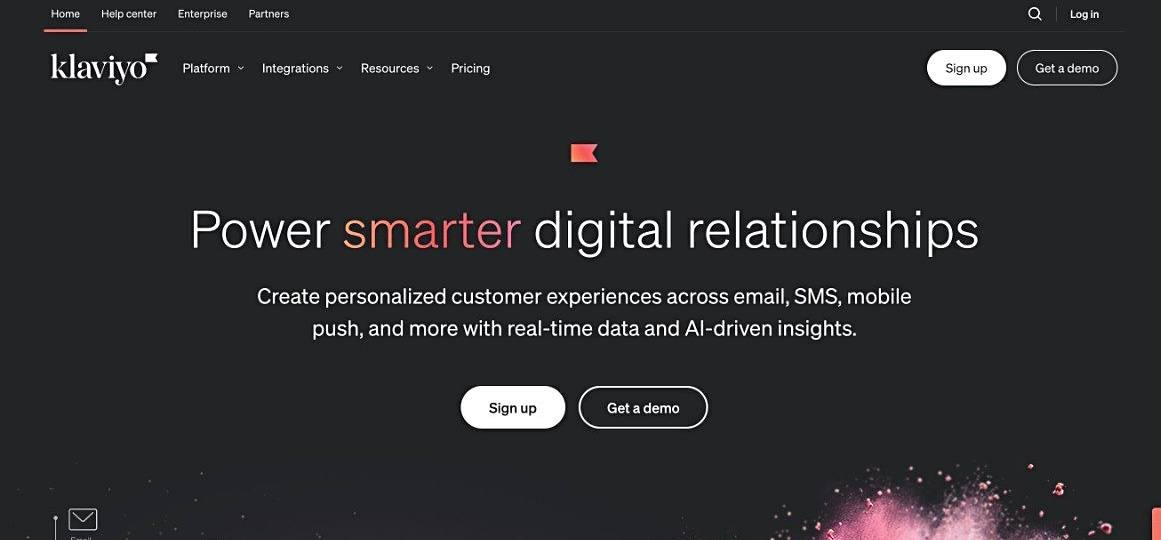
Source: Klaviyo
11. Security measures
Signifyd
This marketplace integration service protects merchants against fraudulent chargebacks and consumer abuse. Such situations may occur when a seller fulfills their obligations, but a buyer claims a refund.
The system scans if an order is valid and rejects shipments for fraudulent orders. Thanks to advanced big data and machine learning technologies, it takes milliseconds for Signifyd to approve or reject an order.
Moreover, Signifyd guarantees the accuracy of its services and pays sellers back for fraudulent chargebacks. Thus, the services protect merchants against abuse in sales procedures.
Signifyd’s prominent customers include eBay, Samsung, and Walmart.
Sift
This AI-powered integration helps you avoid fraud at all selling steps, from checkout to chargebacks. The tool analyzes apparently unconnected hints to identify consumer fraud and abuse. Sift's ability to analyze customer behavior on the site in real time makes it stand out.
How does it work? A user sees the score, which shows how risky the visitor is. So, a seller or website owner can decide how to follow up with different visitors based on their scores. The tool provides an automated response service enabling you to investigate the fraud risk and send responses to visitors or buyers depending on their scores.
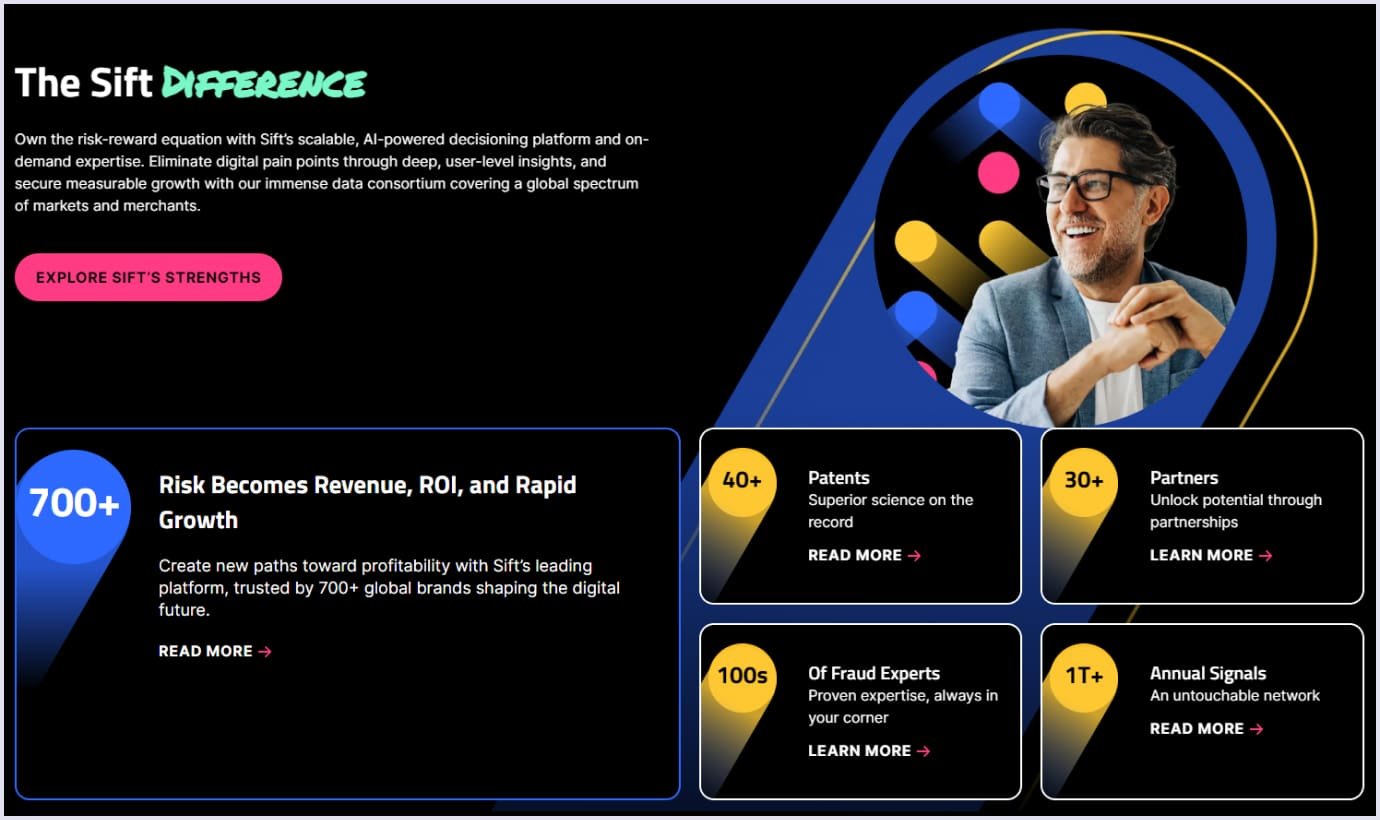
Source: Sift
How Codica adds integrations to marketplaces
When building marketplaces, we aim to optimize their work and make them convenient for users. That is why we include helpful integrations that deliver the best user experience with marketplaces.
When clients contact us about creating a marketplace from scratch, they may have a plan of including integrations. In this case, they share with us what they would like to include in their store. On our part, we support their plans or advise them on the integrations based on our expertise.
For example, when creating an Australian online marketplace for campers, we included the following integrations:
- Stripe for easy and quick payments;
- CDS for connecting data from dealers throughout Australia;
- HemaX for planning user's journeys;
- GitLab for monitoring the platform’s proper work and security;
- Sentry for checking the possible errors that users encounter when using the platform;
- HubSpot for outlining the sources of online sales from new and existing customers.

Including these technologies helped us speed up business processes on the platform. Also, the integrations allowed the marketplace to work continuously and steadily.

Integrations help your business grow
Integrations are valuable tools that improve the work of your store. With API integrations, you can expand the market reach for your selling portal. Also, you can manage your inventory so that the products you demand come to customers on time.
Check our completed projects to see how we make the solutions’ work efficient with integrations. If you want to know more about integrations that suit your business objectives, contact us. We will help you choose the right marketplace integration services tailored to your store’s needs.

